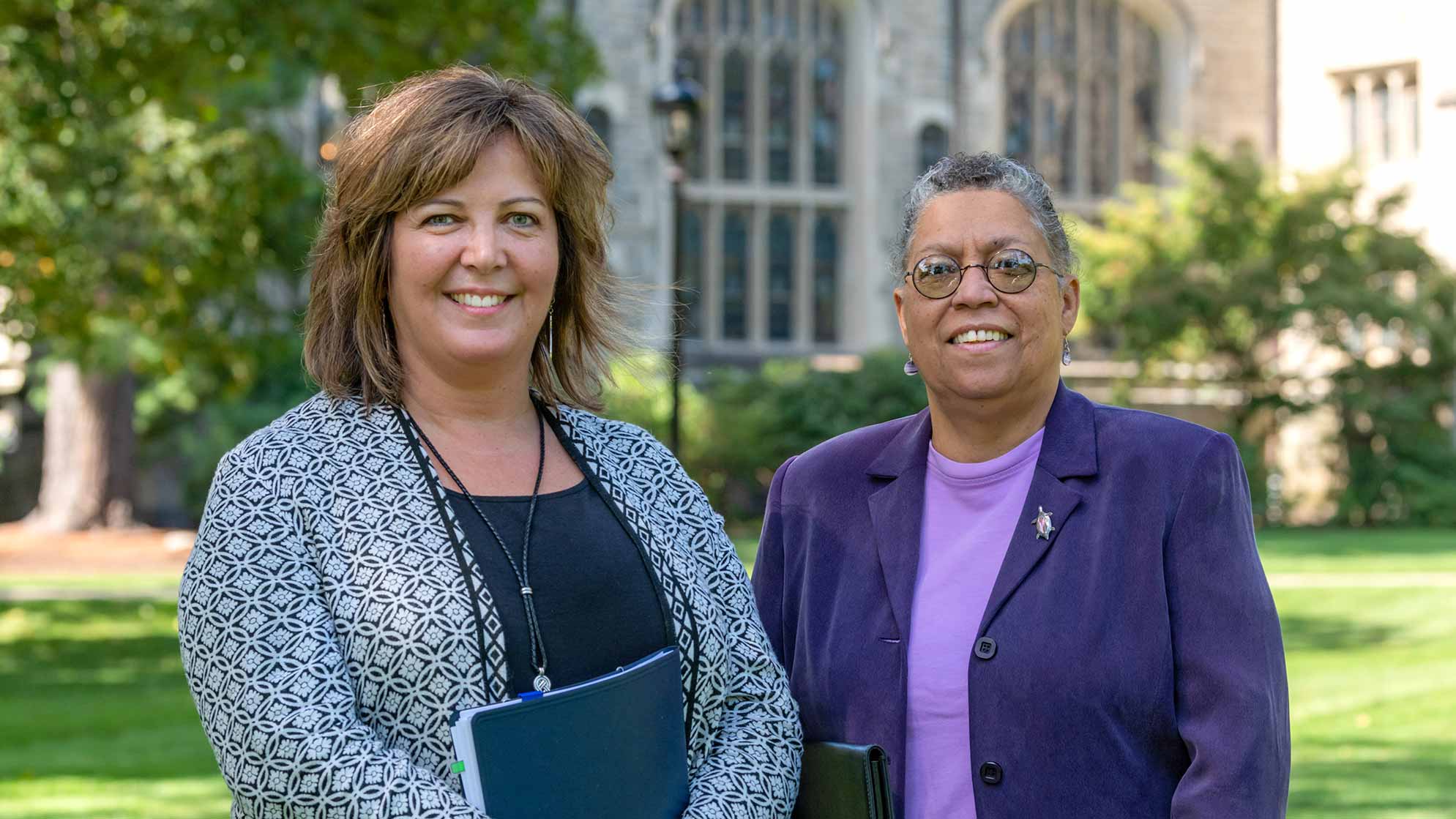Vassar Professional Development Series Offers Food for Thought…and Action.
Vassar Professional Development Series Offers Food for Thought…and Action.
More than two dozen Vassar administrators took a couple of hours away from their daily tasks to reflect a little on their work lives. The occasion was a workshop, titled “Sustainable Leadership: Navigating Personal and Professional Boundaries,” presented by Wendy Maragh Taylor, Associate Dean of the College for Student Growth and Engagement. The workshop was the first in a series of professional development sessions planned throughout the year by the Office of Human Resources.

Ruth Spencer, Associate Vice President of Human Resources, said they were developed following a series of “brown bag” lunches over the past several years that sought Vassar employees’ input about their jobs. “Planning for the sessions ramped up,” Spencer said, “after President Elizabeth Bradley called for a more comprehensive professional development strategy, and she has been generous with the resources to make it happen.”
During the first session on September 11, Maragh Taylor urged her fellow administrators to keep personal priorities in mind as they pursue their professional goals. Referring specifically to family and other commitments, she noted, “Vassar is a family friendly place, yet there’s a constant pace here that we have to be aware of so it doesn’t distract us from other priorities.”
Maragh Taylor advised the group to beware of “work-ism,” an all too common condition in which people define themselves by the work they do rather than who they are. Work-ism doesn’t actually make people more productive or successful, she noted.
She urged everyone in the workshop to “bring your values with you to work, and let your employer and colleagues know your boundaries.”
Maragh Taylor said this sometimes requires employees to “take the lead in changing the culture,” and she used one of her own experiences as an example. When she first came to Vassar, Maragh Taylor said, she was taken aback by how many people brought their laptops with them to meetings, sneaking peeks at their email, and performing other tasks while others were speaking about important matters.
“Multitasking means you aren’t doing any of these tasks well. The research is clear about that,” she noted. “I was often the only one without an open laptop at meetings, which was not going to change because I appreciate eye contact, listening to others with my full attention, and being listened to as well.” Maragh Taylor also said she recently set an expectation that there be no laptops at the Student Growth and Engagement team meetings.
Maragh Taylor ended the workshop by asking the participants to write down one harmful work habit that they plan to stop, essentially because it was crossing personal/professional boundaries and contributing to their stress. She invited them to set their intentions on what habit to stop as a way to move forward in sustainable ways at the college.
Participants’ answers included plans to stop “being on the phone all the time while with family,” “answering emails after work hours,” “working every weekend,” “talking about work at home,” and “thinking that the only titled leader is the leader.”
One of the participants, Deborah Swartz, Associate Director of Social Media in the Office of Communications, said she believed the initial workshop and others to be presented throughout the year would be helpful to most Vassar administrators.
“We benefit in two ways from these professional development sessions,” Swartz said. “We learn from the coursework, and we meet and interact with colleagues on campus. For six years, I’ve worked in the communications department—which would indicate I meet with a fair amount of individuals on campus—but there are a lot of people I don’t know. I might have seen them, heard their name, or even corresponded via email, but I’ve never met them, never had a conversation with them.”
Swartz called the session Maragh Taylor presented insightful. “We looked at the topic in more ways than one, which I appreciated,” she said. “I was particularly interested in learning about the importance of advocating for yourself, both to define what type of treatment you will allow and to realize the necessity—for the whole team—of having balance in your work and personal lives.”
Sarah Bakke, Associate Director of Human Resources, said future workshops would include training on tasks such as budgeting and using the college’s Workday system, as well as improving communication skills and enhancing professional growth.
“We developed the workshops based on the responses from our employees as well as our own professional expertise,” Bakke said. “We encourage feedback and new ideas for future sessions.”
The fall workshops are:
- October 10: “Disrupting Unconscious Bias in Recruitment and Hiring,” by Edward Pittman, Senior Associate Dean of the College for Professional Development
- October 31:“Budget Interpretations and Travel Expenses,” by Angelique Crump, Controller
- November 5: “What Are You Saying? Improving Communications Skills,” by consultant Jack Appleman
- November 22: “The Impact of Macro and Micro Aggressions in the Workplace,” by consultant Joe Steele, MBA
- December 5: “Balancing Work and Personal Life,” by the Employee Assistance Program
- December 17: “Workday for Supervisors,” by Kimberly Collier, Director of Business Applications